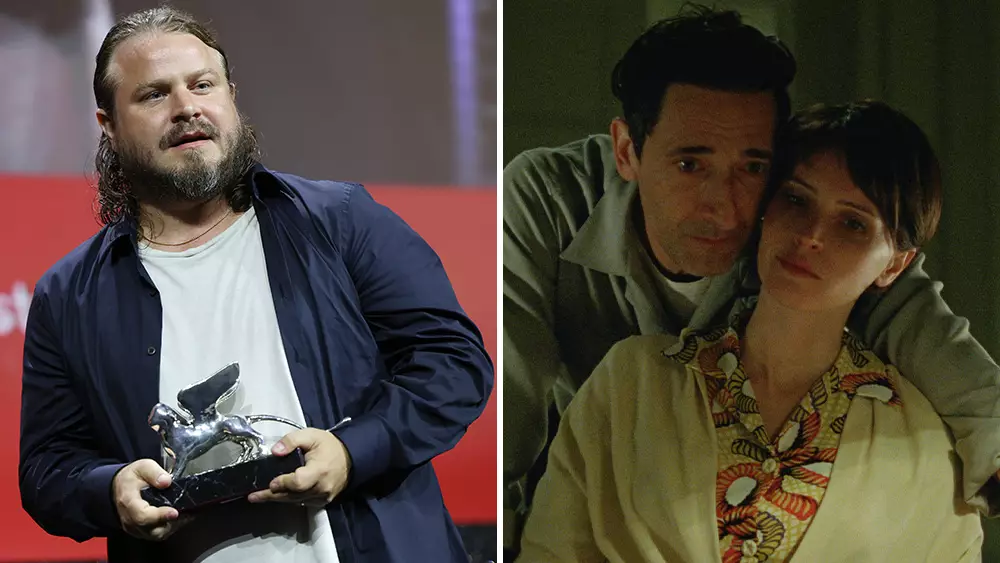Brady Corbet’s recent film, “The Brutalist,” has been situated at the brink of recognition within the independent film sector. With a total of ten Oscar nominations, it reflects the artistic ambition often seen in contemporary cinema. However, the story behind the film’s economic reality paints a stark picture of the financial struggles many independent filmmakers experience, bringing to light the obscured challenges that accompany critical acclaim and public exposure.
Despite its accolades, Corbet revealed a troubling financial narrative: he has seen virtually no monetary return on his recent cinematic efforts. In a candid conversation on Marc Maron’s “WTF” podcast, he discussed how his filmmaking endeavors, including “The Brutalist,” yielded no income, leaving him in a challenging economic position. This sentiment is echoed by numerous filmmakers, many of whom find themselves in a paradoxical situation of notoriety without the financial means to support their livelihoods.
The concept of an artistic career being financially unviable is not novel, but Corbet’s experiences serve to underscore how pronounced this issue is within the independent circuit. Reliant on income from outdated projects or outside gigs, he deliberated on the fundamental disconnect between critical success and financial stability, emphasizing that even filmmakers celebrated by their peers often struggle to meet basic financial obligations.
One of the most striking revelations from Corbet’s discussion revolves around the demands of film promotion. He described the grueling process, likening it to an extended period of interrogation rather than celebration. Engaging in a near-constant cycle of interviews and promotional events can consume months, as it did for Corbet after “The Brutalist” premiered in late 2023. This exhaustive schedule not only hampers the ability to secure alternate work but also imposes significant psychological stress on filmmakers who are already pushing the boundaries of creativity.
The notion of promoting a film across different platforms and countries—often at the expense of personal time and well-being—is a critical issue facing many artists today. The irony is palpable: while their work garners attention and praise, the individuals behind the cameras often find themselves financially disadvantaged and overworked.
Additionally, Corbet’s narrative questions the intersection of artistic legacy and personal sacrifice. As the creator of heavy, ambitious films like “The Brutalist,” which traverses deep and complex themes—from male ego to the haunting effects of trauma—Corbet illustrates a harsh reality: the very art designed to push societal conversation often comes at a high personal cost. He speaks to the challenges of developing a meaningful career and leaving a lasting impact while struggling to sustain himself economically. His experiences hint at the sacrifices artists must make in pursuit of their visions, often prioritizing creative expression over financial viability.
In this context, the discourse surrounding “The Brutalist” extends beyond its narrative. It becomes a broader conversation about artistic integrity, financial crisis within the arts, and the pressures placed on those striving to innovate in a rapidly evolving media landscape.
Comments from former collaborator Natalie Portman highlighted the artistic significance of Corbet’s work, praising his ability to transform filmmaking in an era saturated with formulaic content and franchise-driven narratives. Yet, she expresses an understanding of the underlying struggles Corbet faces. Films like “The Brutalist” reflect a defiance against conventional storytelling, enriching the cultural tapestry while highlighting the artist’s plight to realize such visions.
Ultimately, while “The Brutalist” is recognized among its peers in award nominations, it serves as a poignant reminder of the complexities surrounding artistic creation within our contemporary culture. Corbet’s journey exemplifies not just the triumphs of independent filmmaking but also its often overshadowed struggles—an enduring narrative that invites deeper reflection on what it truly means to be an artist in today’s world.

